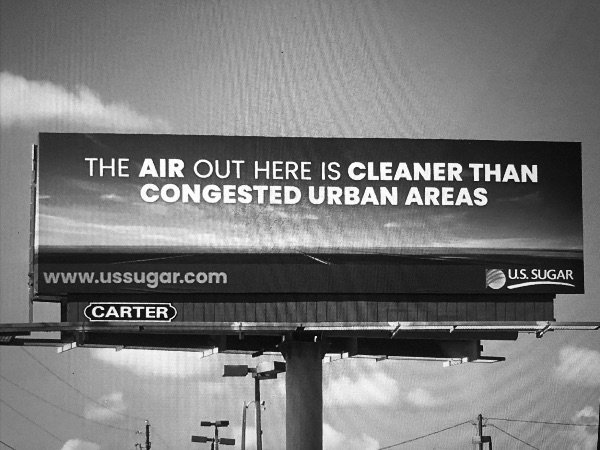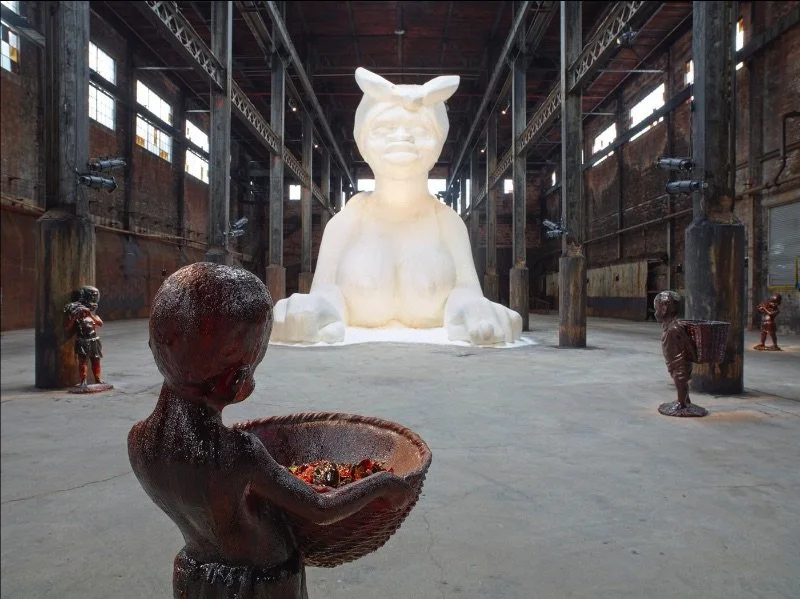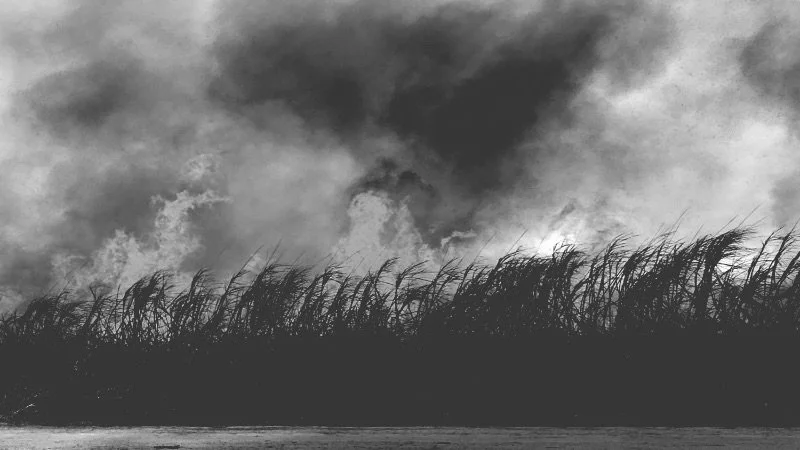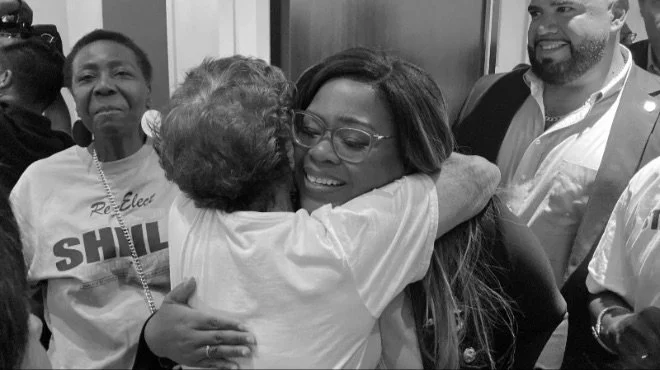
Why 2024 is the Year for Sugar Reform
The year-long extension of the 2023 farm bill gives us a big window of opportunity to re-frame sugar reform as an environmental and social justice matter. We are working every day to educate legislators on the sugar industry, its misdeeds, and the ways the federal government, through the sugar program, is complicit in those misdeeds.
Fanjul Sugar Import Ban: One Year Later
According to a careful new analysis from human rights watchdog The Corporate Accountability Lab, the Fanjuls and Central Romana have turned to their familiar playbook: duck responsibility and pull strings. They've staffed up on lobbyists, leaned on old friends in the Biden administration, and most important, made shambolic change on the ground.
Federal Agents Investigate Fanjul-Owned Central Romana
Federal agents have launched an investigation into Central Romana Corp., a major sugar exporter to the United States, owned by the Florida-based Fanjul family, over allegations of forced labor.
The Fanjuls, Chris Dodd, and Forced Labor
In August, Alfy Fanjul sent this letter to his "friend" Dodd, asking him to help lift a ban on imports from Fanjul’s Dominican sugar plantation. The US Customs and Border Protection imposed the ban last November due to forced labor—“the closest thing I’ve ever seen to modern slavery,” said Michigan Congressman Dan Kildee, who visited the plantation in 2022.
Tom Vilsack and Social Justice
Which brings us to today. We are asking for Secretary Vilsack to help put an end to the civil rights violation that is sugarcane burning. Will he stand on the side of positive change and reform, or will he support the toxic status quo?
Sugarcane Burning & Civil Rights
When the wind blows toward largely Black communities, the state allows sugar growers to burn. When the wind blows toward largely white communities, sugar growers are not allowed to burn. Black communities are thus deprived of protection from the impact of sugarcane smoke and ash—protections their white counterparts benefit from.
Our Visit to Capitol Hill
Most legislators had never heard a case for sugar reform on the basis of social justice, the environment, or human rights. That's all changing—right now. We are reshaping how America's legislative leaders view the sugar industry and laying the groundwork for change.
Forced Labor & Supply Chains
It's hard to imagine hardworking, honest, tax-paying sugar beet farmers — like Kildee's constituents or the good people of Kimball, MN — want anything to do with the Fanjuls and modern slavery. But the sugar program couples them together. They are inextricably linked — and therefore, complicit.
Jobs and Environmental Justice
A new study from a Harvard graduate student adds to the case for ending sugarcane burning. The study includes a cost-benefit analysis of alternatives to sugarcane burning: replacing sugarcane harvesters with a more efficient approach; processing the cane "trash" into biofuel for resale; and planting a "cover crop" during the fallow year to stabilize soil, prevent nutrient loss prevention, and control pests. The study concludes there are multiple ways to reform the industry that "result in a prosperous sustainable symbiotic future for the sugarcane industry and the environment."
Sugarcane Burning Kills
Big Sugar's claims are misleading, but irrefutable evidence is mounting. In a peer-reviewed study, Florida State University researchers find sugarcane burning produces roughly 5,000 tons of particulate matter per year. That's as much as the total annual emissions of every motor vehicle in the state of Florida.
Air pollution of that concentration kills. The FSU team finds mortality rates from this exposure almost 10 times higher for residents living next to the fields than for those outside the immediate area. That amounts to one to six deaths per year as a result of sugarcane burning emissions.
In South Florida, ‘black snow’ makes breathing difficult for some Black and Latino residents
From NBC News by Patrice Gaines
After Florida State University published a study about the effects of burning sugar cane on marginalized communities, residents say it’s time to stop the practice.
Photo by Greg Lovett / The Palm Beach Post / USA Today Network
Big Sugar’s Burning Hypocrisy
It was a crystal-clear, get-outside kind of day in south Florida last Friday. With one exception: in the working-class, largely Black communities surrounded by sugarcane fields, places like Belle Glade and Clewiston. Residents of those places experienced a day-long smoky twilight. Many stayed inside to avoid breathing cane ash, a toxic substance known as black snow.
Take Action Today to Make Change
We're writing to ask for your help today in shaping sugar industry reform. This action will take three minutes.
The Pressure on Big Sugar Grows
Increasing attention on the harm and hypocrisy of sugarcane burning in working-class, largely Black communities.
Growing concern over toxic red tides and their impact on marine life, water safety and livelihoods in a treasured region of our country.
Widening recognition — thanks to action by the US Customs and Border Protection agency — that Big Sugar is responsible for modern slavery on a plantation in the Dominican Republic.
Toxic Algae Bloom Season
Florida is bracing for a major algae bloom this spring —potentially at the scale of 'Toxic 2018.' That's the year months-long blue-green algae blooms choked the state's coasts, killing marine life, damaging the Everglades, and wounding the state's tourism, recreation and real estate sectors.
Big Sugar, it won't surprise you, is behind the blooms. Captains for Clean Water, a grassroots nonprofit, has a helpful breakdown of how the sugar industry's phosphate-laden runoff pollutes Lake Okeechobee, the Everglades, and Florida's coastlines.
Justice and Jobs
Nearly every time we talk sugar reform, two points land with the greatest force.
The first point has to do with the unjust and hypocritical approach to sugarcane burning in south Florida.
The second forceful point has to do with jobs.
Forced Labor and Sugar Reform
The US move to block sugar imports from the Fanjul family-owned Central Romana plantation in the Dominican Republic has electrified our campaign for sugar industry reform, putting a spotlight on the use of forced labor in sugar production.
That spotlight forces us to consider the tragedy of forced labor inside one of our closest neighbors. Perhaps more important, it forces us to consider the fact that US policy makes that forced labor possible.
Sugar Reform Game Changer
In an extraordinary move last week, the U.S. blocked sugar imports from a Fanjul family-owned sugar plantation in the Dominican Republic. The plantation, Central Romana, produces sugar sold under the Domino label (the Fanjuls also own C&H Sugar, Florida Crystals and other brands). According to U.S. Customs and Border Protection, the move is based on "information that reasonably indicates the use of forced labor in its operations," including abusive working and living conditions and withheld wages.
A Coalition Built for Political Uncertainty
While we wait for answers on party control of the US House and Senate, here's what we know for certain: Big Sugar is on its heels, with a political landscape that has shifted sharply in favor of industry reform.
Last Burn Season: Hester’s Story
Hester is a Belle Glade native who worked for years in the sugarcane fields. This is her story.



















